Department of Aeronautics celebrates latest round of academic promotions
by Tom Creese
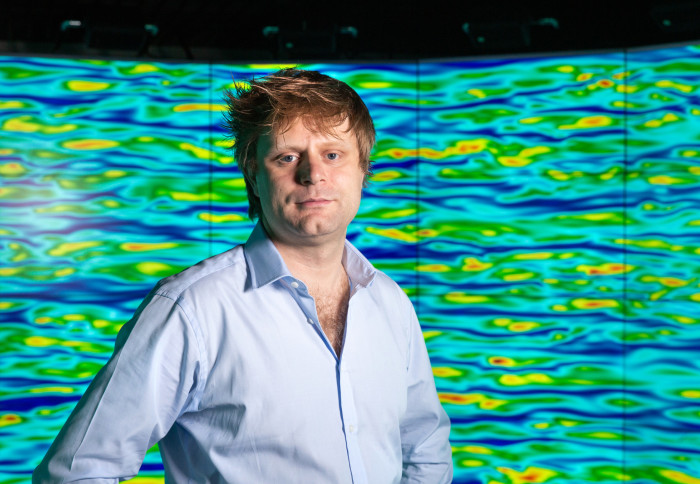
Professor Peter Vincent is one of the five promoted academics
Five Department of Aeronautics academics have been promoted to mark the start of the new academic year.
To celebrate their promotions, we spoke to our newly promoted colleagues about their academic backgrounds and research, as well as their favourite things about working at Imperial and their advice for aspiring academics.
Professor Peter Vincent, Professor of Computational Fluid Dynamics
“I actually did my undergraduate degree in Physics here at Imperial between 2001 and 2005. I completed a PhD in Aeronautics with (Professor Spencer Sherwin) on simulating blood flow in the human body. Then in 2009, I went to Stanford for two years to work with Professor Antony Jameson on numerical methods, with more of a focus on compressible flow, on aerospace applications. In 2011, I re-joined Imperial as a Lecturer."
“Since then I’ve built up a research group based around the three pillars of Computational Fluid Dynamics (CFD): theory, implementation and application. To have impact with CFD tools, you can’t just look at one of these areas in isolation.”
“I think the breadth of CFD research activities is one of the more unique aspects of my research group. I like working in a multidisciplinary way on diverse, exciting projects, whether that’s simulating airflow inside jet engines, blood flow in the human body, or more recently working on developing split ventilators for COVID patients.”
“In terms of achievements, I was very proud of receiving a Fellowship from the EPSRC in 2013 to support my research. It has been a complete game-changer in terms of enabling me to think big and take risks.”
“Other proud moments include winning the Philip Leverhulme Prize. For this award, you have to demonstrate what potential you’d be able to unleash with the prize money. Our project related to high-order CFD: we explored developing technologies that could automatically analyse enormous flow solutions as they are generated, with data mining technology. Our research group was also shortlisted for the Gordon Bell Prize - it was great to be among the final six teams for the biggest international prize in supercomputing."
“Developing and maintaining our PyFR software is another highlight. Now, we have people using it all around the world, and we held the first virtual PyFR Symposium this summer.”
"The community spirit in our Department is amazing: everyone is so supportive" Professor Peter VIncent
“Certainly, one of the best things about Imperial is the people. The calibre of the academics is incredibly high. Not only that, but the community spirit in our Department is amazing: everyone is so supportive, from senior staff to junior staff to students to admin staff, everyone works very well together.”
“The other thing that’s amazing about working at the College is the access to the Nursery. The College is very good as an employer of working parents, but the nursery in particular, with the way they basically enable me to do my job, is just phenomenal.”
“Obviously, a career in academia is challenging. It requires significant levels of commitment, hard work and dedication. But the freedom you have to explore new ideas is amazing, and I think unique to academia. You also get to work with some of the brightest minds from all over the world. It’s hugely rewarding: I mean, I get to play with massive supercomputers - who wouldn’t want to do that?”
Professor Mirko Kovac, Professor in Aerial Robotics
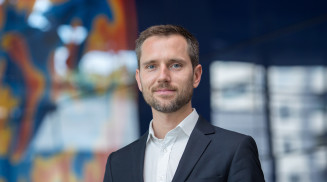
"I joined Imperial College in September 2012. Before that, I was at the Harvard Microrobotics Lab for my post-doc. I studied in Switzerland for my Masters at ETH Zurich and PhD at EPFL. I’ve also done research stays at the University of California in Berkley and in Singapore."
"What inspires me most is making a synergy between robots and animals and the natural world; in other words, how we can learn from the natural world to build better flying robots. This symbiotic work between robotics and biology is one of the main drivers of my research."
"The research I conduct with the Aerial Robotics Lab has several strands. Firstly, there is aerial aquatic mobility for robotics: robots that can transition between flying in air and diving underwater."
"The second strand is in aerial construction, showing how we might manufacture in the future by using flying robots. The third theme is exploiting sensing and sensor placement using flying robots. We’re looking at how to place and use sensors like non-destructive evaluation (NDE) sensors, for example. When not in flight, the robots can perch on surfaces, and this allows us to measure corrosion, paint thickness or damages on infrastructure systems."
“Metamorphic designs (including bio-inspired design and embodied intelligence) and intelligent control autonomy are the key technologies that underpin these robotics."
"When I started here, we had limited space and few robots, so one important step change for the research group was to build our own space allowing us to realise our vision for robot testing. The Brahmal Vasudevan Multi-Terrain Aerial Robotics Arena opened in 2017, and it’s provided us with an extremely valuable and exciting space to test robots in aerial aquatic environments."
"One of the Aerial Robotics Lab’s proudest achievements is our Drones for Good Award. We were awarded first place in this international competition for an aerial robot that can repair leaks in pipes."
"Together with colleagues across the College, we founded (and I currently direct) the Centre of Excellence of Infrastructure Robotics, an initiative that connects nine departments and three faculties. As part of this, we have formed an international partnership with EMPA, a material science institute in Switzerland. We are now a very international group with a capability to combine our flying robots with material science, metamorphic design and bio-hybrid materials."
"The Professorship is exciting and it certainly helps me by providing the validation and credibility to run and co-ordinate major initiatives or submit larger grants, for instance."
"In approaching an academic career, I think it is important to find your core skill and express it. Science is very open, and you can be successful with many different approaches. In finding your voice, finding what you’re enthusiastic about, you can use that to leverage projects and ideas and be successful across various fields of life and science."
Dr Yongyun Hwang, Reader in Fluid Mechanics
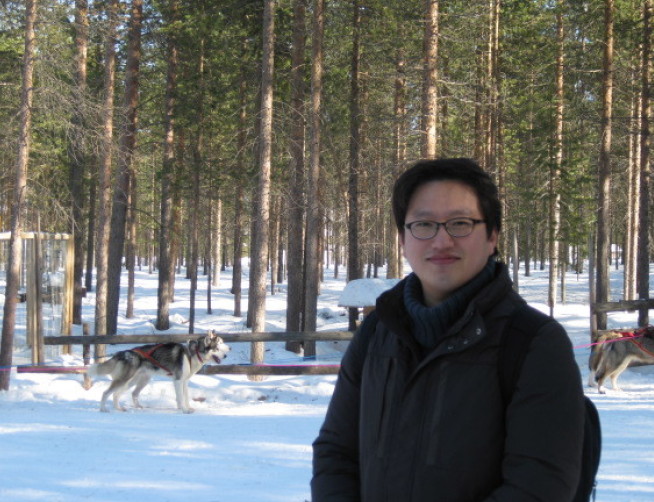
“Having initially studied in South Korea, I completed my PhD in Paris in 2010. I first came to the UK to become a Marie Curie Research Fellow in the Department of Applied Mathematics and Theoretical Physics at the University of Cambridge in 2012. I joined Imperial College in 2013: initially, I started in Civil and Environmental Engineering as a Lecturer before moving to Aeronautics one year later.”
“My research sits on the interface between applied mathematics and engineering. I specialise in understanding flow instabilities, transitions and turbulence, and also the suspension of swimming micro-organisms. By understanding these systems, we can help create benefits for engineering applications.”
“I’m also trying to understand and model turbulent flows over a solid surface. Using the tools of applied mathematics, like dynamical systems and optimisation theories, I analyse the structural organisation of turbulence and characterise skin friction drag. This is very important from a practical perspective because skin friction drag is known to generate 50% of commercial aircraft fuel consumption.”
“I would say the best thing about being at Imperial is the very talented students around...working with these really talented students is always a great pleasure.” Dr Yongyun Hwang
“The Department of Aeronautics has quite a few leading researchers in fluid mechanics, but it’s a research area not limited to our department; it’s really great to interact with these leading researchers across College in the Departments of Mathematics, Bioengineering, Civil Engineering and Mechanical Engineering.”
“I would say the best thing about being at Imperial is the very talented students around, because it’s one of the top institutions in the UK, and working with these really talented students is always a great pleasure.”
“My approach for good scientific research is to focus on what will create the biggest impact in the long-term. It sometimes takes a long time to feel like you’re rewarded, but in the end, what’s left is the research impact you make.”
“It’s exciting to be promoted to Reader, and in this role, I will continue with my work, and to help younger students and academics with their academic goals.”
Dr Qianqian Li, Senior Lecturer
"For my undergraduate degree, I studied at Donghua University in Shanghai, China. After completing my PhD in Polymer Material Science and Engineering at the University of Edinburgh, I moved to Germany to do my post-doc at the University of Erlangen-Nuremberg. Finally, I joined Imperial in 2013 as a Lecturer in Composites."
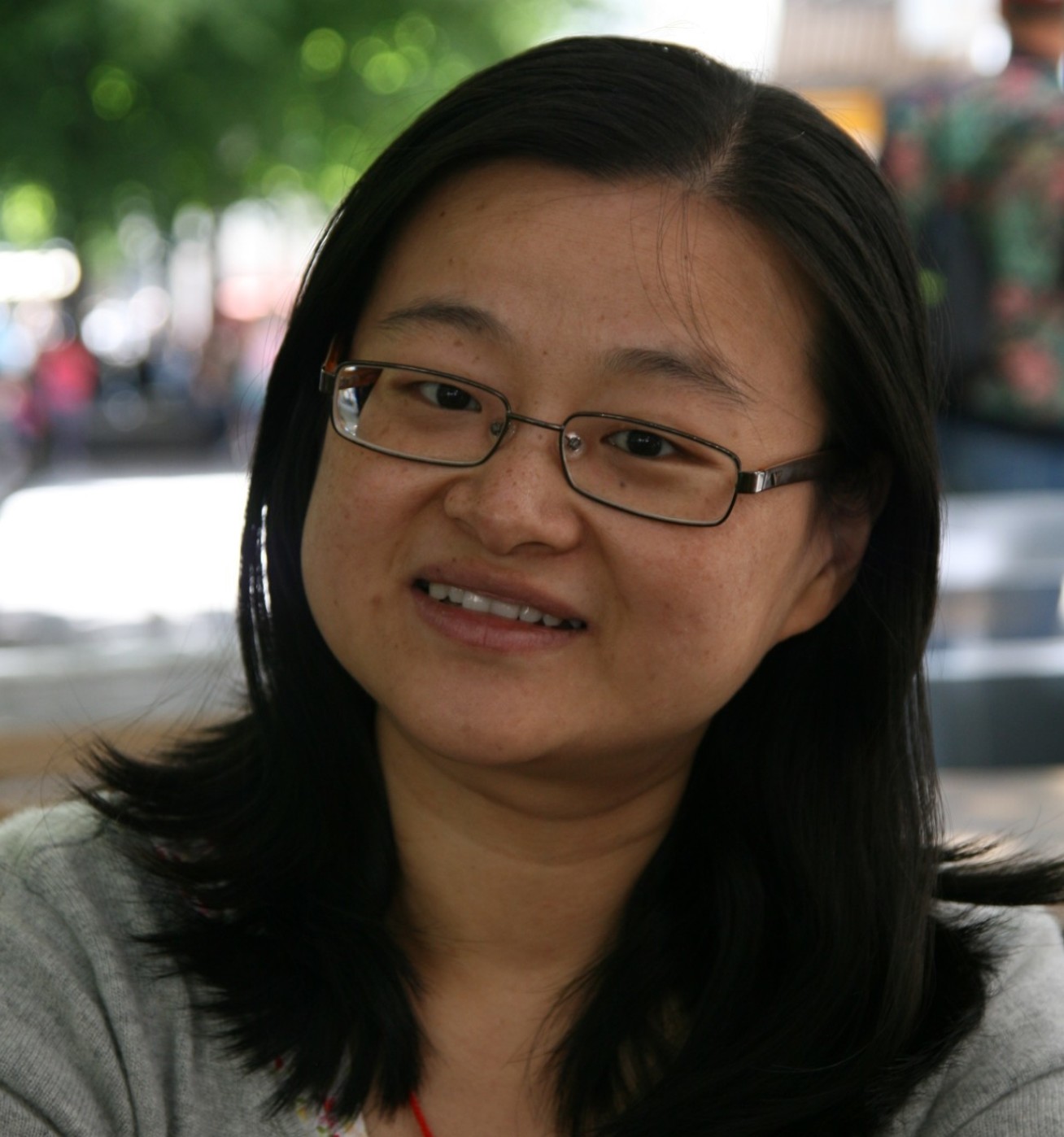
"My research focuses on lightweight composites manufacturing and nanoparticle dispersion, including lightweight metal composites and polymer composites reinforced by nanoparticles. The basic motivation to develop strong lightweight materials is for environmental protection and economic benefits: for example, if the vehicles can use more lightweight composites, it will help to reduce fuel consumption, resulting in lower CO2 emissions."
"Additionally, these lightweight composites, along with mechanical property improvements can provide different advantages to create multifunctional behaviour. For example, a strong structural lightweight composite can also provide good electrical and thermal conductivity."
"In my research group, we focus on using nanocarbon as reinforcements, which are super light, with excellent mechanical and physical properties. By putting them into lightweight metal composites, they can be potentially seen as next-generation materials, which can be used both in aeronautic and automotive applications."
"I’m very proud of building my own lab for nano-metal composites (manufacturing from scratch in the College). The Lab features a custom-made furnace for metal composite production and nanoparticle dispersion, as well as fully equipped facilities handling nanoparticle safety. It is unique in the college and allowed me to build collaborations across College and other well-known Universities nationally and internationally."
"It's fantastic that the Department is absolutely committed to supporting women in their academic careers, no matter what path they choose to take." Dr Qianqian Li
"Another thing I am very proud of is the fact I have managed to reach where I am now despite having gone through a quite difficult career path to stay in academia since the birth of my second daughter. I especially appreciate that I am strongly supported by both the Department and the College. After I returned from my maternity leave in 2015, I was one of the first academic staff in the Department to be a part-time working parent, allowing me to develop my successful academic career while also managing my family life."
"It's fantastic that the Department is absolutely committed to supporting women in their academic careers, no matter what path they choose to take. I also would like to share my experience with other colleagues and encourage them to find their own path to pursue their chosen career."
Dr Ajit Panesar, Senior Lecturer
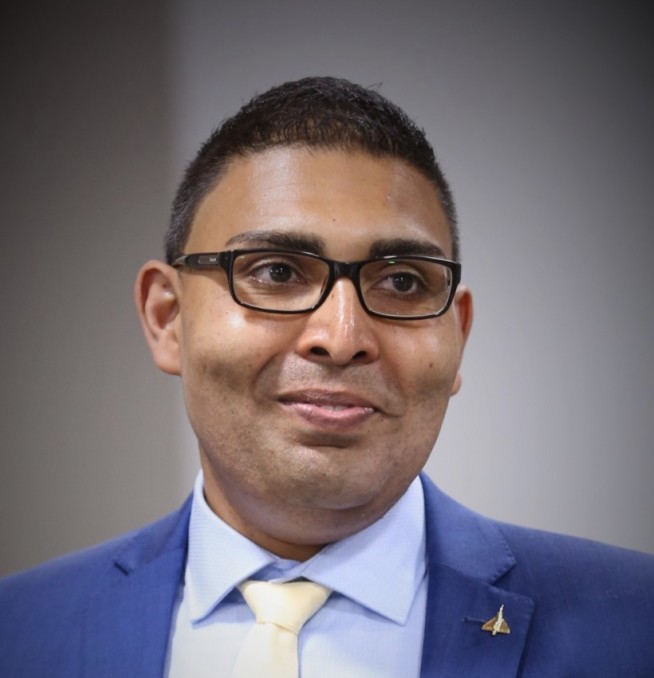
“I joined the Department in April 2017 as a Lecturer in Design for Innovative Manufacturing, after having completed my PhD from the University of Bristol and a post-doc from the University of Nottingham.”
“My research by nature is multi-disciplinary and focuses on developing and applying computer methods to progress two of the most promising and innovative manufacturing technologies of our time: additive manufacture and composite tow steering. I contribute to three areas: light-weighting approaches (latticing and topology optimisation), multi-functional design optimisation and design for manufacturing (DfM). An emerging area of focus in my group is the utilisation of Machine Learning in DfM.”
“One of the most valuable things I’ve done is to help develop the Design for Additive Manufacturing module jointly with Dr Connor Myant. This has allowed me to package my research into bite-size taught content which the class has found equally rewarding. The joy in seeing one’s students mature is second to none.”
"I’d encourage aspiring academics to seek mentoring support from more established academics – there is always something to be learned!" Dr Ajit Panesar
“An academic role is multifaceted! Being able to manage several responsibilities and maintain a healthy work-life balance is key to long-term success. I’d encourage aspiring academics to seek mentoring support from more established academics – there is always something to be learned! At Imperial, we are surrounded by some great talent and excellent support, so we have it pretty good here.”
Article text (excluding photos or graphics) © Imperial College London.
Photos and graphics subject to third party copyright used with permission or © Imperial College London.
Reporter
Tom Creese
Department of Aeronautics
